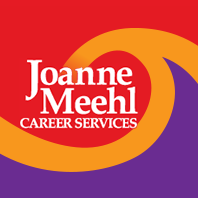De-Age Your Resume By De-Aging Your Attitude

(an update of my 2015 article at the Skywater Search blog)
I'm a Boomer so I have plenty of sympathy for baby boomers who are in job search, and are being overlooked because they're perceived as expensive, stuck, and working in old ways that aren't used any more.
So I am often asked by more senior candidates (and consultants), "How do I look younger on my resume?"
I don't think that's the right question.
I think the right question goes wider and deeper than that: it should be, "How do I adopt a more flexible attitude?"
While you can't change everyone's way of thinking -- and sometimes the most biased against boomers hiring managers are baby boomers themselves -- there are some things you do have control of.
- Embrace new ways of doing things. A big example: social media. Snickering when someone tells you how they use Twitter or Instagram isn't showing a younger, more open attitude. But asking that person to tell you more and show you how to use it, is.
- Keep up your skills in your field. It's easy to get swept aside by the speed of change, easy to give up on learning ALL the new stuff. Take online courses, for example, in newer technologies and find ways of using them so you get comfortable. Attend certification courses that include an internship. Focus on a few big tools that everyone's asking for, to enhance your marketability.
- Be open to contracting and consulting. This is a great way to accrue time using new skills in particular.
- Stop using an Objective, especially one that reads like so many others, such as "Eager to apply my ____ skills to add to the bottom line of the right company where I can be challenged". Replace it with a summary instead.
- Don’t start your Summary with phrases such as "Senior ______ professional with over 25 years experience..." The reader’s reaction: “Expensive!” and perhaps “Entitled!”
- Stop using lonnngggg sentences, which lose the reader’s interest. Keep sentences and phrases short, snappy. Tip: if you’re using semicolons, it indicates your sentences ARE too long. Plus, people don’t use them as much anymore (they often don’t know how). Keep it short.
- Don’t use wordy, formal, lawyer-like phrases: "including but not limited to..." when describing a series of skills. Get to the point and list them.
- Do NOT use a functional resume. You’re not fooling anyone by putting your job history on page 2 and stuffing page 1 with Competencies. Employers want to see what you did where and when. Don’t make them guess or they’ll go on to the next resume.
- Mention how you learn something new in each role you’ve held, and want to continue learning. Give examples of very recent training, webinars, etc. This counteracts the notion that you are the older candidate, who is set in his/her ways and will just tell the team how to do everything.
In the end, they will know your age, but save it for when you are face to face with the potential employer. But dazzle them first with what you can actually bring them.

Comments
Recent Posts
Blog Archive